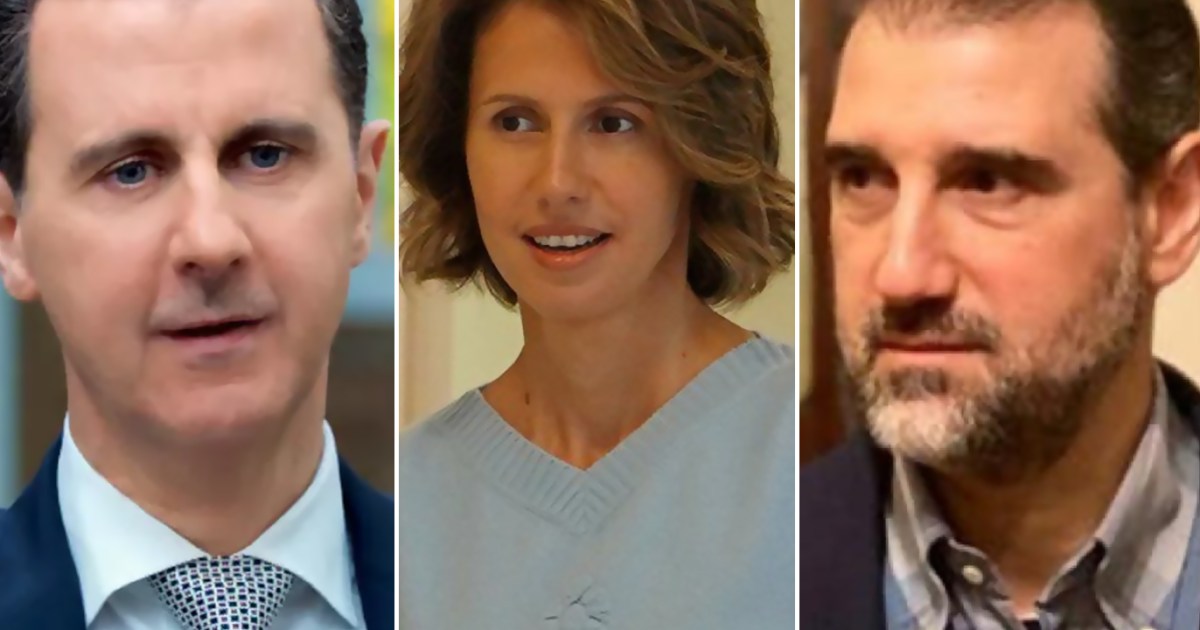A sharp turn reached the Syrian economy after the dispute erupted between businessman Rami Makhlouf and Asma Al-Akhras, the wife of his cousin, President Bashar al-Assad.
The Syrian economy received the strongest blow after Rami Makhlouf was asked to pay taxes in excess of 120 billion Syrian pounds (about 66 million dollars) for his most important economic projects: the only two telecommunications companies in Syria, which have one complete and the largest share in the second since the mobile phone entered the country in 2000.
Rami Makhlouf refused to give in to the payment order, considering that this came based on false information that reached Bashar al-Assad, and he appealed to him to intervene to solve the problem during a video clip he posted on his official Facebook page.
But Rami Makhlouf - who appeared in the video clip weak - revealed the weakness of the Syrian economy after the lira was rocked after the dispute broke out between the Makhlouf family and the Assad family, after a few months of its stability at an exchange rate of one thousand pounds per dollar, to become more than 1700 pounds per dollar, This caused the prices of basic materials to more than triple what they were last month.
The Executive Director of the Syrian Economy Working Group, Tamam Al-Baroudi, confirmed - in an interview with Al-Jazeera Net - that Rami Makhlouf manages many resources belonging to the Syrian economy, in addition to the resources he owns.
Al-Baroudi said that the collapse of the Syrian pound is not only related to Makhlouf, but also because the country has no plan to develop the economy, adding that all those close to the regime are "plundering illegal actions."
Coast divisions
The importance of Makhlouf does not lie in being a wealthy businessman and a relative of Bashar al-Assad only, but rather comes from the sect to which Bashar al-Assad and his relatives belong in the Syrian coast, and this set a precedent that did not happen in Syria with the same momentum, especially since Makhlouf deliberately directed his speech in his third appearance On social media to those he described as the poor of Syria, asking Bashar al-Assad to spend the money he could pay to improve their conditions.
But the leaks through pro-regime pages indicate that Makhlouf has taken from the coast his current residence, and he seeks to collect his greatest support from the sect.
In an attempt to further confuse the papers, Rami Makhlouf announced the start of transferring the ownership of his shares in banks and insurance companies to his charitable organization known as "Ramak Humanity", and he explained in a statement posted on his Facebook page that the Ramak Foundation is not inherited, and that any sale or profit of shares He will return to charity.
The symbol of corruption
Many Syrians consider Rami Makhlouf the basis of corruption in the country, but others believe that his authority stems mainly from Bashar al-Assad, so the file of corruption is managed by the president of the country.
This was confirmed by former Prime Minister Riad Hijab in a series of tweets on Twitter, in contrast to the names of Al-Akhras and Rami Makhlouf, as Hijab said that "Bashar al-Assad is bidding for the implementation of the constitution and the law, and Rami Makhlouf is bidding for the poor, both of whom are liars."
Hijab added that the manifestations of Makhlouf's corruption increased after the adoption of policies to raise government support and liberalize the economy in 2005, which led to the impoverishment of the Syrians and the emergence of a series of companies that Bashar Al-Assad owns the largest share of.
The former Prime Minister confirmed that the Makhlouf family is formally mandated by Bashar al-Assad to manage his money, and he has allocated for them the bulk of the oil contracts that go to his personal accounts and that of his wife Asma al-Akhras.
He pointed out that Bashar Al-Assad asked him to convert the contracts of the two communications companies "Syriatel" and "MTN" to lease contracts for 35 billion Syrian pounds (19 million dollars), after the date for transferring their ownership to the state was approaching.
Hejab explained that after the formation of two committees, the first headed by the Minister of Finance and the second headed by the Minister of Communications, it was confirmed through them that the state would lose about five billion dollars if the two companies were converted into lease contracts, so the transfer was not implemented and implemented by the Wael Al-Hilqi government after the veil announced his defection from the system in 2012 .

